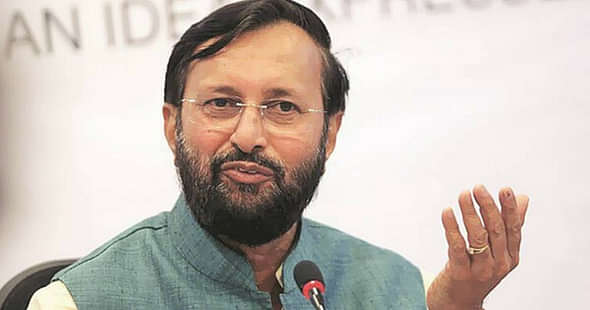- HRM Minister, Javadekar informed that NCERT would reduce the syllabus by half next year.
- Apart from the heavy syllabus, the focus will be laid on the overall development of students, he said.

With a target to provide relief to school students, National Council for Education Research & Training (NCERT) has decided to reduce the syllabus by half from the upcoming academic sessions. The confirmation regarding the reduction of NCERT syllabus was made by Union HRD Minister, Mr. Prakash Javadekar.
The minister was of the opinion that the school syllabus was more than that of B.Com and B.A courses. Therefore, there is need to minimise the syllabus and focus more on the activities pertaining to the overall development of students. Full freedom must be given to students at the stage of development of cognitive skills, he added.
The suggestions to reduce the NCERT syllabus has been taken so that students will get more time to pursue other activities. The suggestions will be implemented in a duration of two to three years. The HRD Minister has invited all stakeholders (parents, teachers and students) to give their suggestions. These suggestions will then be reviewed by the Ministry after two months.
The suggestion to reduce the syllabus were made during six workshops that were conducted across the country. Consultations were made with various education experts and subject experts. The Minister also added that students will be encouraged to focus more on basic concepts of the subjects.
Also Read: NIT and IIT Graduates to Teach Engineering Students in Remote and Backward Areas: Javadekar
The HRD Minister further clarified that the reforms in school education are under consideration. Examinations and detentions will be introduced in the school education. There is no competition and target without the existence of examination. Competition is a key factor for witnessing better outcomes. The Bill in this regard is expected to be presented in the parliament during the next budget session, he explained.
According to Javadekar, students must be detained only if they have flunked in the examinations multiple times. He also expressed his concern that poor learning outcomes in school education are the byproducts of poor quality of teachers. It is the major responsibility of the teachers to assess the strengths and weaknesses of students and mentor them accordingly, he pointed.
Also Read: Javadekar Urges Teachers to have Passion towards Teaching
Javadekar further pointed that over 20 lakh teachers were expected to be trained by 2015 as per RTE Act. However, only five lakh teachers were covered under the training programme. At present, 14 lakh teachers are taking part in skill enhancement programme . Better results and outcomes in school education can be witnessed soon, he hoped.
Javadekar concluded that the draft of New Education Policy would be submitted by the end of March 2018.


 Follow us
Follow us













